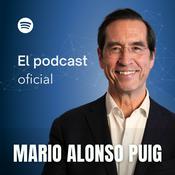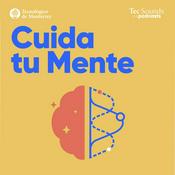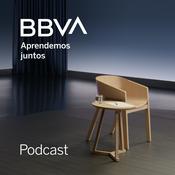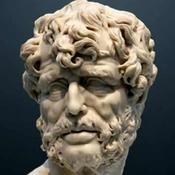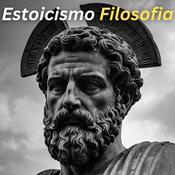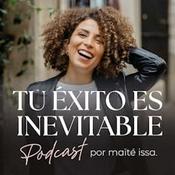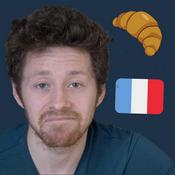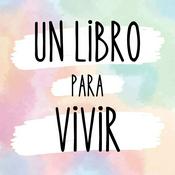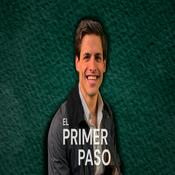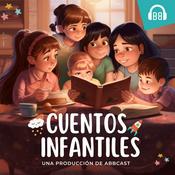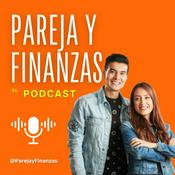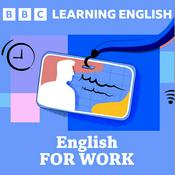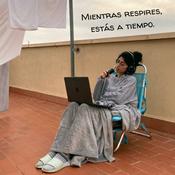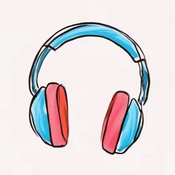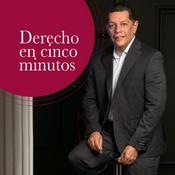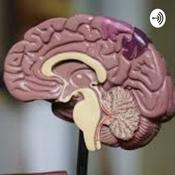82 episodios
- Practice this micro story on https://upwordo.com/ for free - with interactive exercises, vocabulary, memo helps, grammar tips, translation and more.
DEUTSCH:
Herr Tristano ist ein alter Mann in Belcastro, Italien. Eines Tages fällt er und bricht sich sein Bein. Er ruft den Krankenwagen, doch der Wagen kommt erst nach 23 Stunden an.Belcastro ist ein kleines Dorf in Süditalien. Es leben hier nur 1.200 Menschen. Die Hälfte der Einwohner ist über 65 Jahre alt.Das Problem ist die Lage. Das nächste Krankenhaus ist 45 Kilometer weit weg. Die Wege sind lang und der Dorfarzt ist oft nicht da.Antonio Torchia ist der Bürgermeister. Er schreibt viele Briefe an die Regierung und bittet um Hilfe, aber niemand antwortet ihm.Also hat er eine Idee. Es ist eine sehr verrückte Idee, um die Aufmerksamkeit zu wecken.Im Januar 2025 schreibt er ein neues Gesetz: „In Belcastro ist es ab heute verboten, krank zu werden."Was sollen die Leute tun? Sie sollen nicht fallen, nicht schnell fahren und keinen gefährlichen Sport treiben. Sie sollen viel schlafen.Seine Briefe hat früher keiner gelesen. Über dieses Gesetz schreiben jetzt aber alle Zeitungen in Italien, England und in Amerika.Das Gesetz ist absurd. Die Situation der Krankenpflege ist aber auch absurd. Manchmal zeigt die Absurdität die Wahrheit. - Practice this micro story on https://upwordo.com/ for free - with interactive exercises, vocabulary, memo helps, grammar tips, and more.
DEUTSCH:
Tomoe Sawano wollte schon immer ein wunderschönes Hochzeitskleid tragen. Aber sie war dreißig Jahre alt und Single. In Japan gibt es überall einen starken Druck, zu heiraten.Alle ihre Freundinnen planten gerade ihre Hochzeiten. Tomoe fragte sich, ob ihr Traum jemals wahr werden würde. Sie fühlte sich gefangen.Dann entdeckte sie „Solo-Hochzeiten“. Viele Frauen trugen schöne Kleider und ließen professionelle Fotos machen.Zuerst war es Tomoe peinlich. Aber dann änderte sie ihre Meinung. Es ging darum, mit sich selbst zufrieden zu sein. Dies war ein Teil der wachsenden „Ohitorisama“-Kultur in Japan.„Ohitorisama“ bedeutet, Dinge alleine mit Stolz und Freude zu tun. Tomoe erkannte, dass ihr Traum keinen Partner brauchte, um wahr zu werden.Sie buchte dieses Erlebnis in Kyoto. Sie suchte sich ein wunderschönes weißes Kleid aus. Der Fotograf machte Bilder von ihr an tollen Orten.Kirschblüten fielen um sie herum, während sie lächelte. Die Fotos hielten ihr Glück und ihre Freiheit fest.Als sie die fertigen Fotos sah, veränderte sich etwas in ihr. „Dieses Erlebnis hat mein Selbstbewusstsein gestärkt“, sagte sie. „Die Wirkung war außergewöhnlich.“Tomoes Geschichte handelt nicht von Einsamkeit. Sie handelt von Mut. Es geht um Frauen, die sich für sich selbst entscheiden. Tausende japanische Frauen machen das Gleiche – sie feiern ihr Leben und ihre Unabhängigkeit. Und sie sind wunderschön.
ENGLISH:
Tomoe Sawano had always wanted to wear a beautiful wedding dress. But she was thirty years old and single. In Japan, there is a strong pressure everywhere to get married. All of her (female) friends were planning their weddings. Tomoe wondered whether her dream would ever come true. She felt trapped. Then she discovered “solo weddings.” Many women wore beautiful dresses and had professional photos taken. At first it was embarrassing for Tomoe. But then she changed her mind. It was about being satisfied with herself. This was part of the growing “Ohitorisama” culture in Japan. “Ohitorisama” means doing things alone with pride and joy. Tomoe realized that her dream did not need a partner to come true. She booked this experience in Kyoto. She picked out a beautiful white dress. The photographer took pictures of her at great locations. Cherry blossoms fell around her while she smiled. The photos captured her happiness and her freedom. When she saw the finished photos, something changed inside her. “This experience strengthened my self-confidence,” she said. “The effect was extraordinary.” Tomoe’s story is not about loneliness. It is about courage. It is about women who choose themselves. Thousands of Japanese women do the same thing, they celebrate their lives and their independence. And they are beautiful. - Practice this micro story on https://upwordo.com/ for free - with interactive exercises, vocabulary, memo helps, grammar tips, and more.
DEUTSCH:
Jordan kündigt ihren Job, um einen Mann zu treffen, der im Amazonas-Dschungel lebt. Die beiden haben sich noch nie persönlich gesehen. Vier Monate früher scrollt sie spät in der Nacht durch Instagram. Plötzlich erscheint ein sehr attraktiver Mann auf ihrem Bildschirm, der Videos aus dem Regenwald in Ecuador postet. Jordan schreibt ihm eine Nachricht. Als Pitiuruk, ein indigener Mann aus einem abgelegenen Dorf, ihr antwortet, ist sie völlig überwältigt. Sie beginnen, jeden Tag zu videotelefonieren. Jordan zeigt ihm ihr Leben am Strand, und Pitiuruk nimmt sie mit in seine Welt mit Trommeln, Teezeremonien und einem Alltag ohne Strom. Trotz der 14.000 Kilometer Entfernung verlieben sie sich immer mehr ineinander. Nach vier Monaten trifft sie ihre Entscheidung: Sie bucht vier Flüge und eine Busfahrt bis in sein Dorf. Als sie Pitiuruk am Flughafen sieht, verschwinden ihre Zweifel. Die Umarmung fühlt sich elektrisch an, und die nächsten zwei Wochen sind wie ein Traum mit Wasserfällen, Flüssen und Hängematten. Der Moment, der sie wirklich zum Weinen bringt, ist, als seine Mutter sagt: „Unser Dschungel ist dein Dschungel.“ In diesem Augenblick spürt Jordan, dass sie ein zweites Zuhause gefunden hat. Als Jordan Ecuador verlässt, sind sie offiziell ein Paar. Zurück in ihrem Heimatland teilt sie ihre Geschichte auf TikTok, und fast sieben Millionen Menschen sehen zu. Heute sind sie, gegen alle Erwartungen, immer noch zusammen. Viele Menschen glauben, dass Beziehungen nur mit Gemeinsamkeiten funktionieren, mit gleicher Kultur, gleicher Sprache und gleicher Welt. Jordan und Pitiuruk haben das nicht, und trotzdem funktioniert ihre Liebe.
ENGLISH:
Jordan quits her job to meet a man who lives in the Amazon jungle. The two have never seen each other in person. Four months earlier, she is scrolling through Instagram late at night. Suddenly a very attractive man appears on her screen, posting videos from the rainforest in Ecuador. Jordan writes him a message. When Pitiuruk, an Indigenous man from a remote village, replies, she is completely overwhelmed. They start video calling every day. Jordan shows him her life at the beach, and Pitiuruk takes her into his world with drums, tea ceremonies, and everyday life without electricity. Despite the 14,000 kilometers of distance, they fall more and more in love with each other. After four months she makes her decision: she books four flights and a bus ride to his village. When she sees Pitiuruk at the airport, her doubts disappear. The hug feels electric, and the next two weeks are like a dream, with waterfalls, rivers, and hammocks. The moment that truly makes her cry is when his mother says, "Our jungle is your jungle." In that moment, Jordan feels that she has found a second home. When Jordan leaves Ecuador, they are officially a couple. Back in her home country, she shares their story on TikTok, and almost seven million people watch. Today they are still together, against all expectations. Many people think that relationships only works with common ground, with the same culture, the same language, and the same world. Jordan and Pitiuruk do not have that, and yet their love works. - Practice this micro story on https://upwordo.com/ for free - with interactive exercises, vocabulary, memo helps, grammar tips, and more.
DEUTSCH:
An einem kalten Morgen im Oktober schlüpft ein Monarchfalter aus seinem Kokon, aber einer seiner Flügel ist gebrochen. Für einen Schmetterling bedeutet das normalerweise, dass er nicht überleben wird. Eine Frau namens Dagmar findet den Schmetterling in der Nähe ihres Hauses in New York. Dagmar liebt Schmetterlinge, deshalb bringt sie ihn in ein besonderes Tierzentrum. Zuerst sagen die Mitarbeiter im Zentrum: „Wir können dem Schmetterling nicht helfen.“ Aber Janine antwortet: „Doch, das können wir!“ Janine arbeitet im Tierzentrum, und sie hat 25 Jahre lang mit Tieren gearbeitet. Sie kennt viele Probleme, aber auch genauso viele Lösungen. Janine hat eine Idee. Sie findet einen toten Schmetterling mit einem perfekten Flügel. Diesen Flügel möchte sie dem lebenden Schmetterling geben. Zuerst legt Janine den Schmetterling für zehn Minuten in den Kühlschrank, damit er ganz ruhig und langsam wird. Dann benutzt Janine einen speziellen Kleber, um den neuen Flügel zu befestigen. Die Operation dauert nur fünf Minuten. Der Schmetterling ruht sich aus, und dann öffnet Janine ihre Hände. Der Schmetterling fliegt in den Himmel hinauf, und es sieht wunderschön aus. Die meisten Menschen würden nie daran denken, einen Schmetterling zu retten. Aber wenn dir etwas wirklich wichtig ist, ist es egal, was andere sagen. Du solltest es versuchen.
ENGLISH:
On a cold October morning, a monarch butterfly hatches from its cocoon, but one of its wings is broken. For a butterfly, this usually means it will not survive. A woman named Dagmar finds the butterfly near her house in New York. Dagmar loves butterflies, so she takes it to a special animal center. At first, the staff at the center say, "We cannot help the butterfly." But Janine answers, "Yes, we can!" Janine works at the animal center, and she has worked with animals for 25 years. She knows many problems, but just as many solutions. Janine has an idea. She finds a dead butterfly with a perfect wing. She wants to give this wing to the living butterfly. First, Janine puts the butterfly in the refrigerator for ten minutes so that it becomes very calm and slow. Then Janine uses special glue to fasten the new wing. The operation takes only five minutes. The butterfly rests, and then Janine opens her hands. The butterfly flies up into the sky, and it looks beautiful. Most people would never think of saving a butterfly. But when something is really important to you, it does not matter what others say. You should try. - Practice this micro story on https://upwordo.com/ for free - with interactive exercises, vocabulary, memo helps, grammar tips, and more.
DEUTSCH:
Elinor O'Donovan ist Künstlerin. Aber jeden Morgen geht sie zu einem Empfangsschalter in Cork und beantwortet acht Stunden lang das Telefon. Abends macht sie Kunst, obwohl sie völlig erschöpft ist.Dann ändert eine E-Mail alles. Die irische Regierung wählt sie für ein Programm aus. Sie wird ihr drei Jahre lang jede Woche 325 Euro zahlen, damit sie Kunst macht.Elinor liest die E-Mail zweimal. Endlich kann sie aufatmen. Am nächsten Tag kündigt sie ihren Job.Sie zieht nach Dublin und mietet ein Atelier. Jetzt kann sie den ganzen Tag malen und nicht nur abends. Sie kauft bessere Materialien. Sie hat Energie, um zu experimentieren. Zum ersten Mal ist Kunst ihr einziger Beruf.Elinor ist nicht allein. Irland hat 2.000 Künstlerinnen und Künstler für dieses Experiment ausgewählt. Alle von ihnen haben schon vorher Kunst gemacht und zusätzlich andere Jobs gehabt, um zu überleben.Die Regierung wollte wissen, was passiert, wenn Künstlerinnen und Künstler sich ganz auf ihre Arbeit konzentrieren können.Nach drei Jahren hat sie eine Antwort. Die Künstlerinnen und Künstler schaffen mehr. Sie sind gesünder. Sie brauchen weniger Hilfe vom Staat. Jeder ausgegebene Euro bringt der Gesellschaft mehr zurück.Im Oktober 2025 macht Irland das Programm dauerhaft.Während künstliche Intelligenz immer mehr Routinejobs übernimmt, sieht die Zukunft vielleicht so aus: Menschen machen Arbeit, die sie lieben, nicht nur Arbeit, die sie brauchen.
ENGLISH:
Elinor O'Donovan is an artist. But every morning, she walks to a reception desk in Cork and answers phones for eight hours. At night, she makes art even though she is completely exhausted. Then an email changes everything. The Irish government selects her for a program. It will pay her €325 every week for three years so that she can make art. Elinor reads the email twice. Finally, she can breathe again. The next day she quits her job. She moves to Dublin and rents a studio. Now she can paint all day instead of only at night. She buys better materials. She has energy to experiment. For the first time, art is her only job. Elinor is not alone. Ireland chose 2,000 artists for this experiment. All of them were already making art and also working other jobs to survive. The government wanted to know what happens when artists can focus completely on their work. After three years, it has an answer. The artists create more. They are healthier. They need less help from the government. Every euro spent returns more to society. In October 2025, Ireland made the program permanent. As artificial intelligence takes over more and more routine jobs, maybe the future looks like this: people doing work they love, not just work they need.
Más podcasts de Educación
Podcasts a la moda de Educación
Acerca de Learn German with Micro Stories
Learn German with Micro Stories. Sign up at upwordo.com for a weekly email with Micro Story transcriptions, vocabulary and interactive exercises.
Sitio web del podcastEscucha Learn German with Micro Stories, BRIAN TRACY - SEMINARIO FENIX (ALTA CALIDAD) y muchos más podcasts de todo el mundo con la aplicación de radio.net

Descarga la app gratuita: radio.net
- Añadir radios y podcasts a favoritos
- Transmisión por Wi-Fi y Bluetooth
- Carplay & Android Auto compatible
- Muchas otras funciones de la app
Descarga la app gratuita: radio.net
- Añadir radios y podcasts a favoritos
- Transmisión por Wi-Fi y Bluetooth
- Carplay & Android Auto compatible
- Muchas otras funciones de la app


Learn German with Micro Stories
Escanea el código,
Descarga la app,
Escucha.
Descarga la app,
Escucha.


